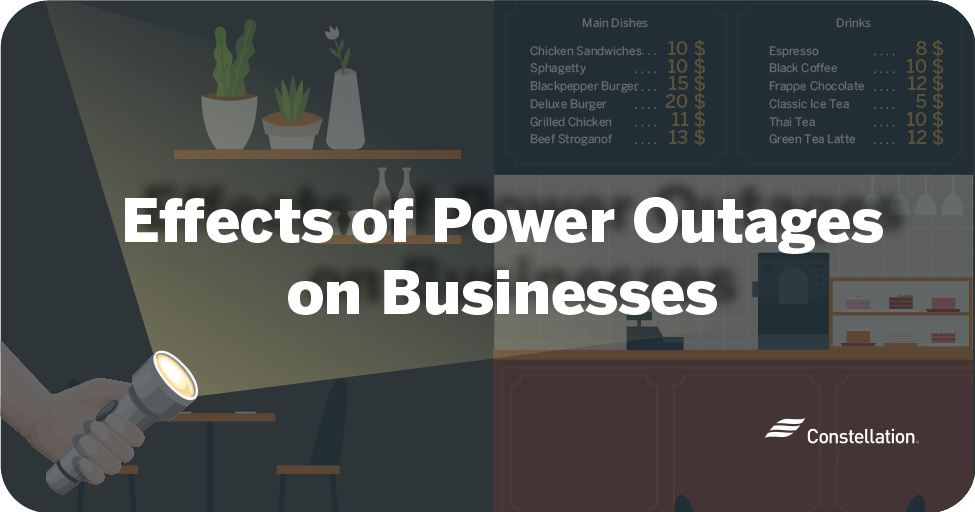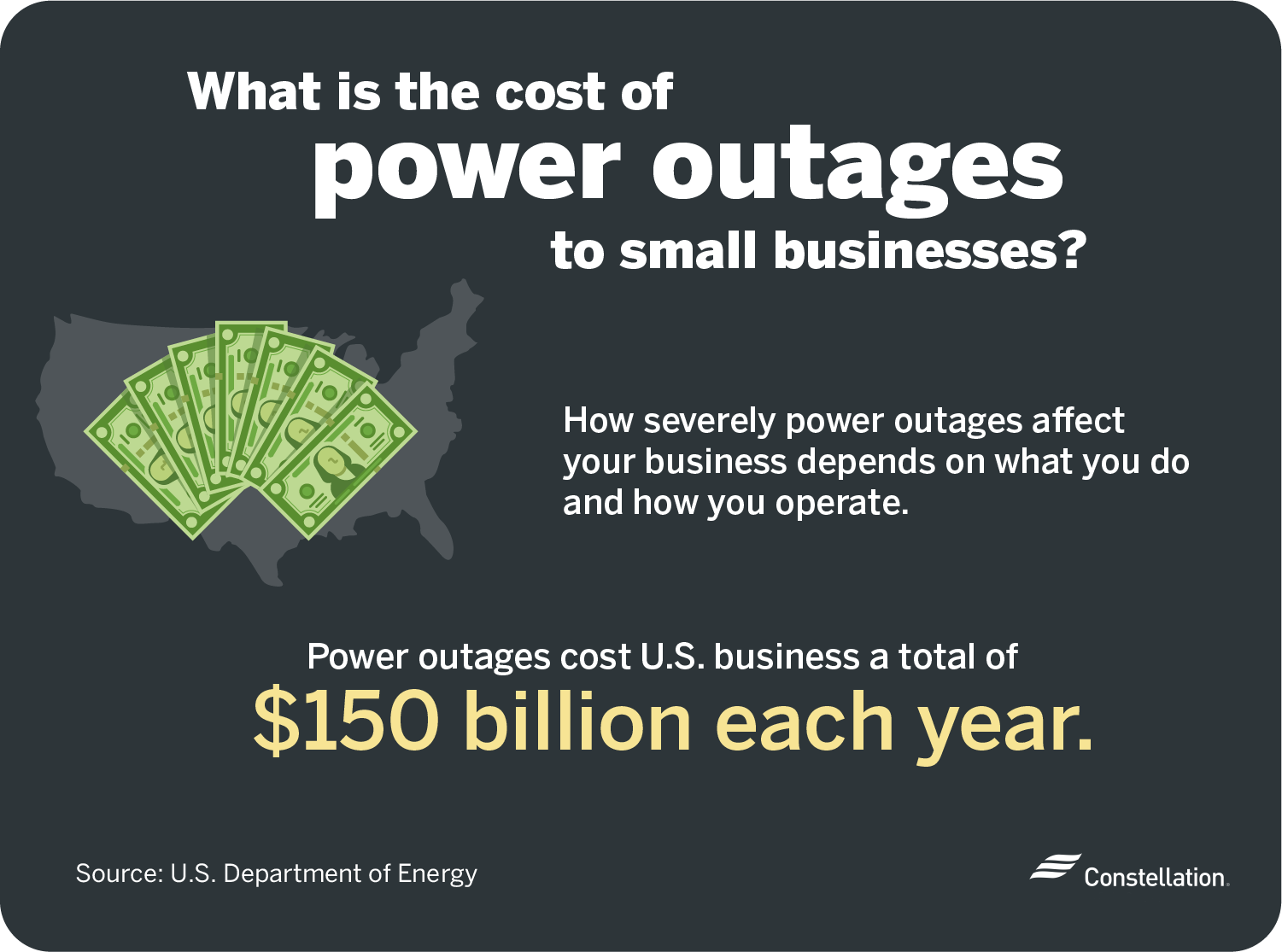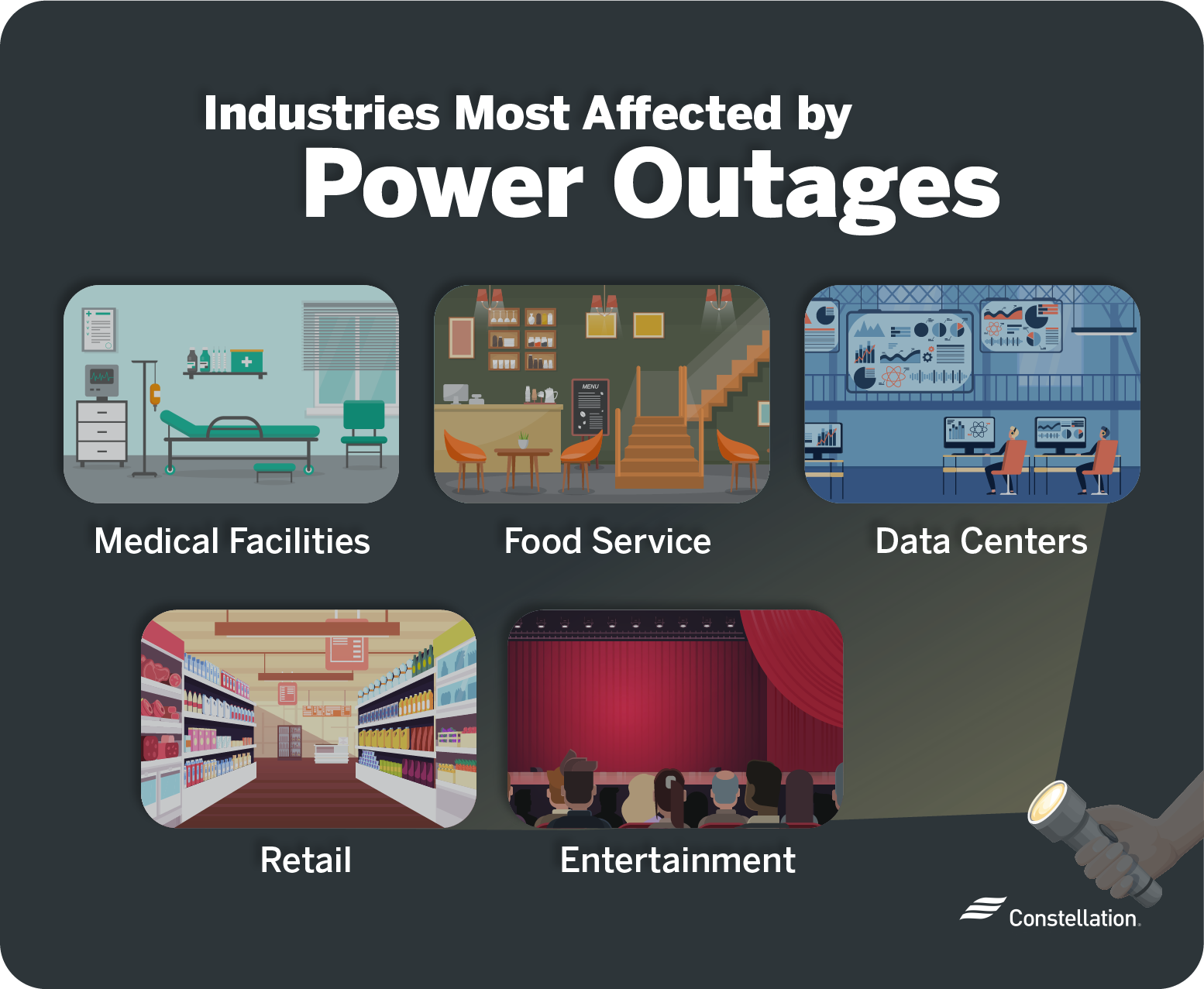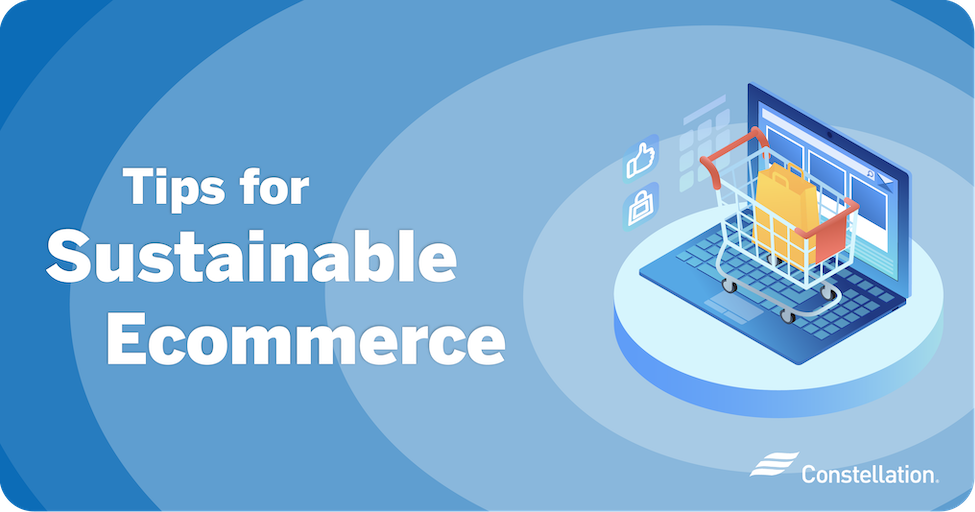
- Category:
Disaster Preparedness -
Last updated:
February 22, 2022
Effects of Power Outages on Businesses
Our lives and businesses have become increasingly dependent on devices and the technology that powers them. Businesses use technology like point-of-sale (POS) terminals, smart lighting, smart thermostats and automated inventory tracking to operate more efficiently. But when the power goes out, this technology stops working — and business can grind to a halt.
How can a power outage affect a business? There are a number of ways, and these effects can linger long after the power comes back on. Understanding just how businesses are affected by power outages is the key to making sure you’re prepared to minimize the impacts of outages when they happen.
7 ways a power outage can affect your business
- Missed transactions and decreased revenue
- Excess or unturned inventory
- Damaged equipment
- Lost business data
- Reduced employee productivity
- Customer service challenges
- Inflated operating expenses
What is the cost of power outages to small businesses?
How power outages affect the economy as a whole
Which industries are most affected by power outages?
Making sure your business is ready for a power outage
7 ways a power outage can affect your business
Even a short power outage will affect your business’s ability to interact with customers, employees and your inventory and equipment. Depending on how frequently temporary outages occur, the cost associated with each of the following issues can add up over time.
1. Missed transactions and decreased revenue
Most retail businesses use technology to link inventory control, customer loyalty tracking and additional data collection to the point of sale. This is a great practice in the long run, but it means that most retail establishments will be unable to conduct transactions during a power outage. If the outage lasts longer than a couple of minutes, customers are likely to leave without buying, and that’s lost revenue.
2. Excess or unturned inventory
When you miss out on sales because the power is out, the lost revenue may not be your only problem. If your inventory pipeline is automated, the items you didn’t sell during the outage will still be in your inventory when your next shipment arrives. You’ll either have to take the time to adjust incoming shipments or deal with the excess inventory. If your inventory contains perishable items, you may end up having to throw them out. And that’s more lost revenue.
3. Damaged equipment
Even if a power outage is short-lived, it can still be costly to your business if the sudden loss of power, or the sudden restoration of power, damages expensive computers or other electronic equipment. Computer hard drives can be damaged if not properly shut down. And circuit boards in any piece of equipment can be damaged if still plugged in and on when the power surges back.
Surge protectors can help, but they may not prevent harm when the power returns. Even if you have backup generators, they may take a few seconds to turn on, and you likely won’t have enough time to unplug sensitive equipment before that happens. Consider using uninterruptible power supplies for your most sensitive equipment to bridge the gap and prevent expensive damage by making sure important devices never fully lose power.
4. Lost business data
Most businesses today rely on the data they collect while operating for planning, forecasting and even generating leads for future business. In most cases, this data is backed up automatically. But depending on how often backups occur, a sudden power outage can affect your business’s data pipeline by losing hours’ — or even days’ — worth of valuable data.
5. Reduced employee productivity
Whether your business is retail, manufacturing or service-based, it’s hard to imagine how any employee could continue to work without power. When the power shuts down, your employees have to as well. And since they’re still on the clock in most cases, the downtime is a direct loss of revenue.
Power outages will also have an effect on your business’s remote workers. And if that worker is collaborating with others who are not experiencing the outage at their location, work for the entire group may stop, and productivity will suffer.
6. Customer service challenges
There’s never a good time for a business to experience a power outage, but there are some really bad times. If you’re having to turn customers and sales away, you’ll want to have a good customer service plan in place and perhaps offer incentives for them to return once the power is back on.
But getting them to return may not be your biggest problem. If a customer has traveled some distance or is returning an item, a power loss can make them feel as if they’ve received poor customer service, even if your process is highly rated under normal circumstances. That can lead to negative reviews, which can tarnish your business’s reputation and lower revenue over time. Having a strong customer service focus can keep a short power loss from becoming a long-term problem.
7. Inflated operating expenses
If you live in an area where severe storms are a frequent occurrence and businesses are affected by power outages on a regular basis, you may have taken steps to provide alternative power sources when you need them. Purchasing and maintaining a generator that provides enough power to operate your business is likely a significant portion of your operating budget. Things like generator maintenance, periodic testing and fuel will add to your business’s operating costs.
What is the cost of power outages to small businesses?
Depending on what your business does and how you operate, power outages may affect your business more or less severely than others. In 2015, the U.S. Department of Energy looked at data from 2000 to 2014 and estimated that power outages cost businesses approximately $150 billion each year.

How power outages affect the economy as a whole
If power outages are widespread or go on for a long period of time, they can affect businesses in high-enough numbers to have a noticeable impact on the regional or even national economies. Since storms are the most common cause of unexpected interruptions in electricity service, the outages that have the most impact on businesses and the economy usually follow significant weather events, such as hurricanes. After focusing on the years between 2003 and 2012, government researchers estimated that the U.S. economy absorbed a blow of between $18 billion and $33 billion each year due to power outages involving weather. During eventful years, the actual costs can be much higher. In 2012, Superstorm Sandy hit the Northeast and is estimated to have cost the economy more than $75 billion.
Which industries are most affected by power outages?
While most industries rely on power to some degree, some sectors are hit especially hard when the power goes out. The most vulnerable industries represent a high percentage of lost revenue, or have to build expensive preventative measures and backups into their operating costs.

- Medical facilities. Medical facilities are significantly affected by power outages. They rely on power for patient monitoring, treatment and tracking as well as facility support services.
- Food service. Restaurants rely on power for everything from cooking and refrigeration to payment transactions and temperature control. Power outages affect restaurants by creating periods of time when no food can be served and no revenue can be generated.
- Data centers. Most data centers rely on generators to keep servers running and data secure. However, generators may not allow for continued access to the data, and important processes can come to a halt.
- Retail. Retail stores are among the businesses most affected by power outages because sales transactions usually stop when point-of-sale systems don’t have power. In addition, retail outlets can be vulnerable to theft while security systems are down during a power outage.
- Entertainment. Movie theaters and other entertainment venues require power to project and amplify sound and light, not to mention run their HVAC system to keep patrons comfortable. When a power outage occurs, entertainment venues usually cancel shows and end up losing the revenue they would have produced.
Making sure your business is ready for a power outage
Power outages are unpredictable and costly for businesses of all types and sizes. The best business decision is to follow some basic power outage safety tips, have a small-business disaster plan in place and invest in a backup source of power that is both reliable and a predictable expense. With reliable backup generation, your business can be up and running — and generating revenue — during the next power outage reported in your area.




